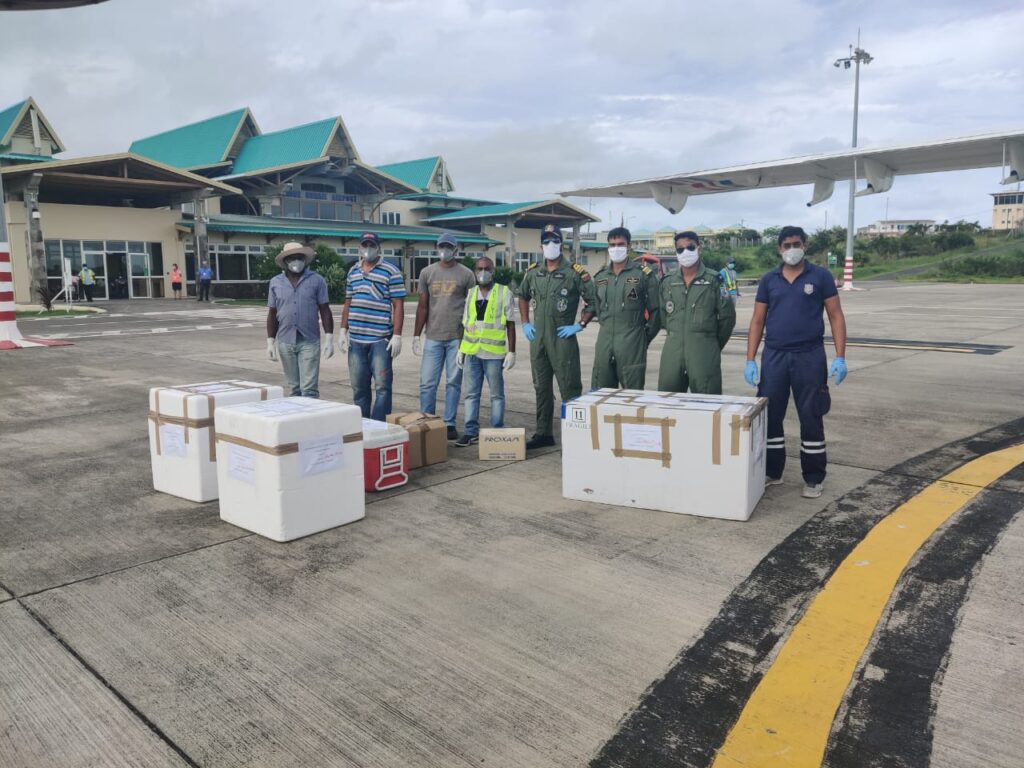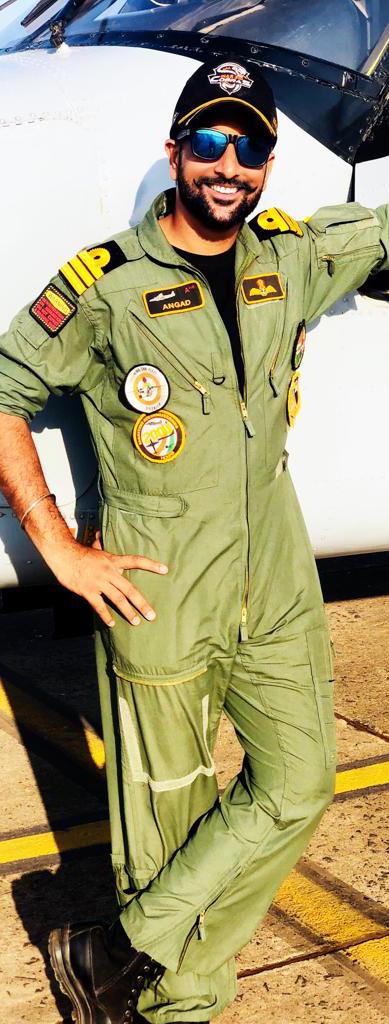
They had no life; not one of their own. They have been operating in all discretion, often in perilous conditions, when the covid-19 pandemic was raging. They are the dynamic airborne and forgotten front liners ferrying in emergency.

They form part of a restricted number of aircrew officers and technicians of the Maritime Air Squadron (MAS), a specialized wing of the National Coast Guard.
While most people were holding their breath in the warmth of their confinement, the Maritime Air Squadron had no time to breathe.
A confinement order was enforced as from 20 March 2020 following the detection of four cases of coronavirus, including one death, in Mauritius. Widespread panic gained the whole island as figures started jumping. The frontiers were closed. Commercial flights were suspended. And the national carrier was grounded. Few days later the confinement order was turned into one of curfew. The country was completely locked down.

Overnight, air communication with the outer world was interrupted. So was the inter-island air link. This is where the services of the MAS were solicited, which warranted the rescheduling of duties with a predicted up leap in workload. Flight operations and configuration had to be reviewed to meet specific requirements. They knew it was one of those moments, no matter what, they had to live up to Mauritius Police Force motto: ‘Salus Populi Suprema Lex Esto’ – the health, welfare and security of the people shall be the supreme law.
The squadron, with its two aircrafts in service, made an unusual number of sorties, much more than they usually effect during normal time. The number nearly doubled with a whopping 200 hours of flight by day and by night, unprecedented in the history of the MAS, asserts Commander Angad Singh Alagh, Commanding Officer.

Their mission was clear: to airlift medical patients from Rodrigues and Agalega, ferry essential medical supplies and samples for testing in Mauritius, and to transfer specialized medical personnel, among others, in order to ensure that the “Cendrillon des Mascareignes” is not deprived of required sanitary or other assistance during the lock down period.

Approximately 3.4 tons of essential items, medical equipment, protective gears for medical personnel and critical cargo for key organizations including the Central Electricity Board, the Central Water Authority, the Mauritius Police Force and the Airport Management Services, among others, were conveyed to the island.

Some 40 patients in extreme medical emergencies were evacuated to Mauritius, including one two day old baby needing NICU (Natal Intensive Care Unit) and seven-month-old girl with apparent skull fracture that necessitated the aircraft to fly at unusually lower level (6000 feet against 10000 feet normal cruising altitude) for optimum oxygen availability and safety conditions. “Flying at low altitudes involves slower speed, higher fuel consumption and longer flight time that add up to the intricacies of flight management”, affirms Commander Angad Singh Alagh, who is at the service of the MAS since September 2019 and is leading an extremely competent set of men at MAS.

But their mission was not confined to Rodrigues only. The Dornier aircraft went beyond the territorial waters with an international jump to Réunion Island to collect sensitive reagents for PCR tests for covid-19. The cabin environment had to be modified in such a manner as to maintain, throughout, the cold chain condition in which these reagents were routed from the original port of embarkation at Amsterdam.

All this didn’t prevent the Squadron to undertake its primary duty of coastal surveillance with a view to maintaining their vigil over the coasts and in the Exclusive Economic Zone area to track people and vessels that might be contravening curfew orders at sea or availing to indulge in illicit practices like illegal fishing, drug trafficking to name a few. The squadron had to be readily available at all times for any mission as could be directed by the authorities. They made more than half a dozen rounds of patrol of the island everyday by providing airborne surveillance for four hours at a stretch. With marine support from the coast guard ships and patrol boats, they managed to sight, interrogate and report about a thousand vessels during their numerous sorties.

Commander Angad Singh Alagh, also an Indian Naval Aviator, states that the conditions of operation were exceptional in view of the exceptional nature of their mission involving strict adherence to sanitary measures as recommended by the health authorities. He has every reason to be satisfied: his crew members put in “relentless efforts favoring national interest over personal comfort to give the most of themselves in the struggle against the invisible enemy“.
When we talk about front liners, our perception directs us, more often than not, to only doctors, nurses, and ambulance staff or police orderly officers. We tend to forget that there are other people out there toiling behind the curtain to bring their share in the common mission of saving human lives. These are the people not usually in our direct line of vision, and therefore, rightly or wrongly, not often acclaimed, but whose discreet actions often make the difference between life and death, at the expense of their own life. They are the Unsung Heroes.